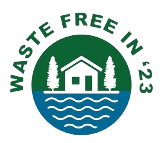(Koulouri et al., 2024) – Read Full Paper Here
Human waste is rich in essential nutrients like nitrogen (N) and phosphorus (P), which are vital for plant growth. However, traditional waste management methods often lead to nutrient loss and pollution. This study investigates how biochar made from faecal waste can be enhanced with stored human urine to create a more effective, nutrient-rich fertilizer.
Key Findings
The researchers found that:
- Biochar from faeces can absorb and store nutrients. When soaked in stored urine, biochar captures nitrogen and phosphorus, preventing these valuable nutrients from being lost.
- Adding magnesium oxide (MgO) improves phosphorus retention. This makes the phosphorus in the urine more available for plants.
- Over 98% of phosphorus and a significant amount of nitrogen were successfully recovered. This makes the enriched biochar an excellent fertilizer alternative.
- The process is simple and cost-effective. It does not require expensive equipment, making it ideal for rural or low-income communities.
Economic and Environmental Benefits
- Affordable and Sustainable Fertilizer: Instead of relying on costly chemical fertilizers, farmers can recycle human waste to enrich their soil naturally.
- Waste Reduction: This method keeps valuable nutrients out of landfills and waterways, preventing pollution.
- Improved Soil Health: The biochar enhances soil structure and water retention, leading to better crop yields.
- Climate-Friendly Agriculture: Recycling nutrients through biochar reduces reliance on synthetic fertilizers, which require energy-intensive production processes.
Conclusion
This study proves that faecal biochar combined with urine is an effective, low-cost, and eco-friendly fertilizer. It provides a practical solution for farmers, especially in areas with limited access to commercial fertilizers, while helping to manage human waste more sustainably.
